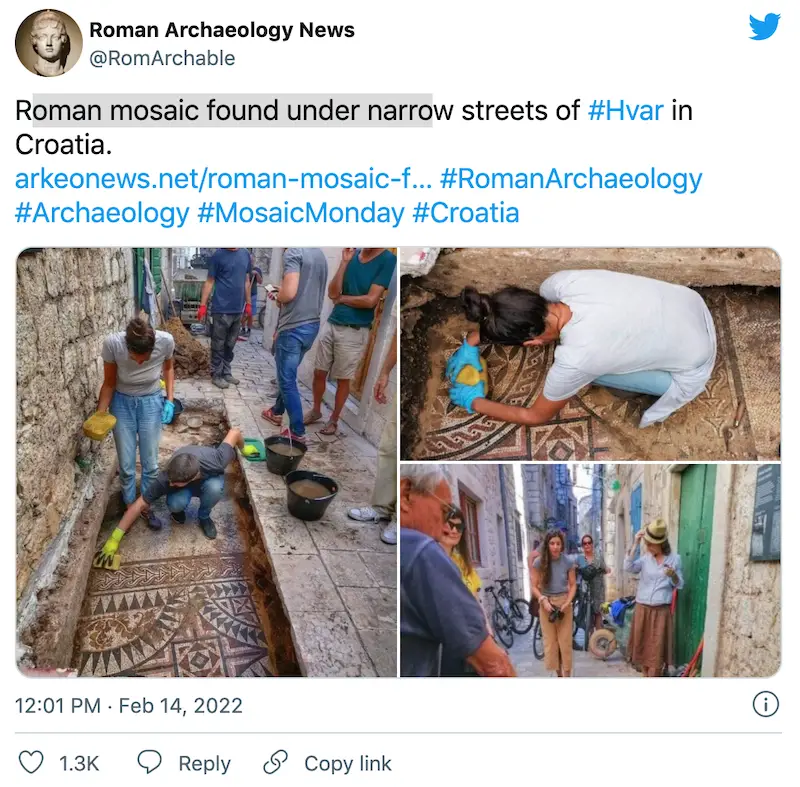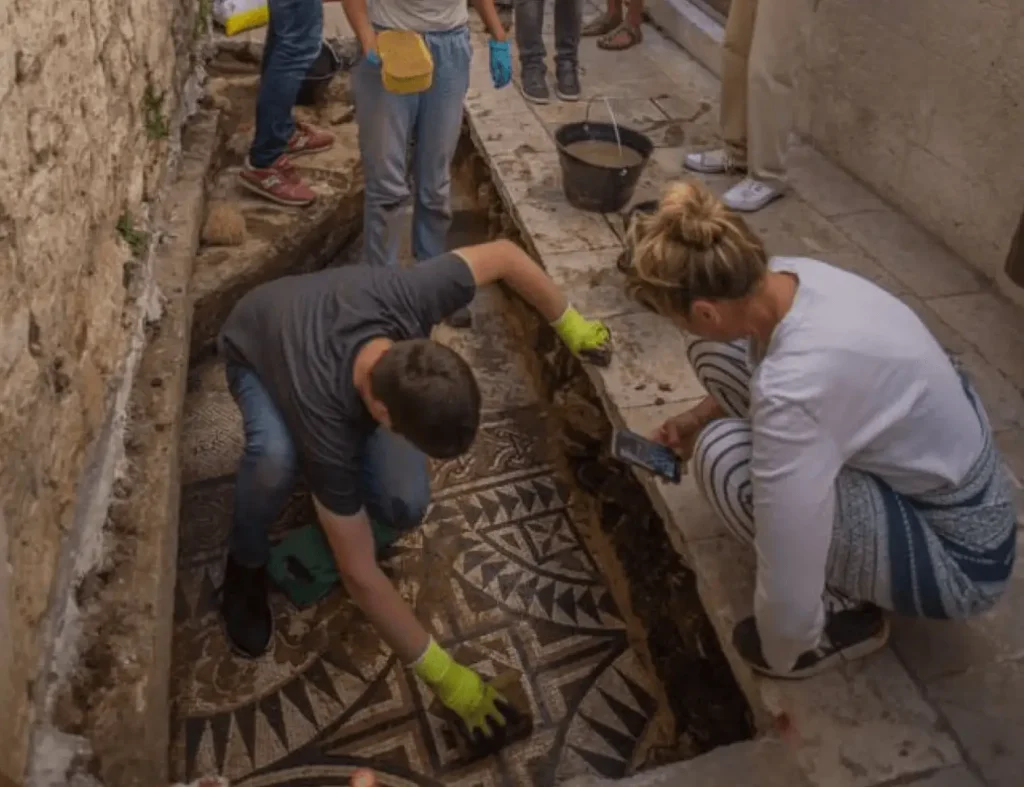Protective archeological excavations have begun in the historic core of Stari Grad on the island of Hvar, which together with the Stari Grad Field was included in the UNESCO World Heritage List in 2008. The research carried out by the Institute of Archeology in cooperation with the Stari Grad Museum is a continuation of the excavations carried out in 2021, which precede the installation of a new infrastructure system and water supply and sewerage network, reports Slobodna Dalmacija.
“The research is taking place at sites that hide significant archaeological remains of the Greek Pharos and the Roman Faria, to get better insight into the degree of their preservation and distribution and new contextual data on the rich past of Stari Grad,” said research leader Marina Ugarković, a research associate at the Institute of Archeology and leader of the “AdriaCos” project, which also included excavations at several locations in the ancient city (384 BC) during October and November.

Her deputies at the latest excavations are Andrea Devlahović, curator of the Stari Grad Museum, and Martina Korić, a doctoral student at the Institute of Archeology, under the supervision of Saša Denegri from the Conservation Department of the Ministry of Culture in Split.
Now, archeological works are taking place in the area of Duoljna and Srinja kola, after which the research will be carried out on Vagonj Street, in front of the Sv. Roko Church – the patron saint of the city, and on St. Stephen’s Square.
“Already during the first few days of excavations, the continuation of the Roman mosaic in Srinja kola was discovered, whose segments are already known to experts and the general public. Depending on the final results of the archeological works, the competent body of the Conservation Department in Split will determine further measures for the protection of the cultural property and the conditions for the continuation of construction works at the mentioned location,” explained Dr. Ugarković.
For more, check out our lifestyle section.









